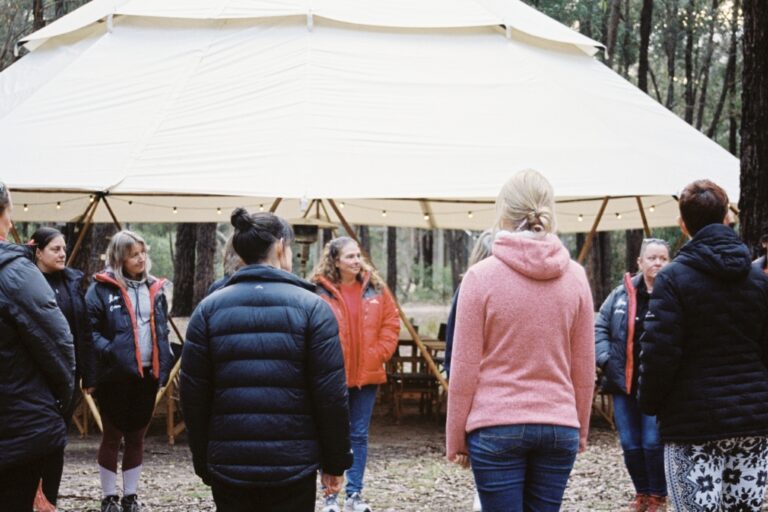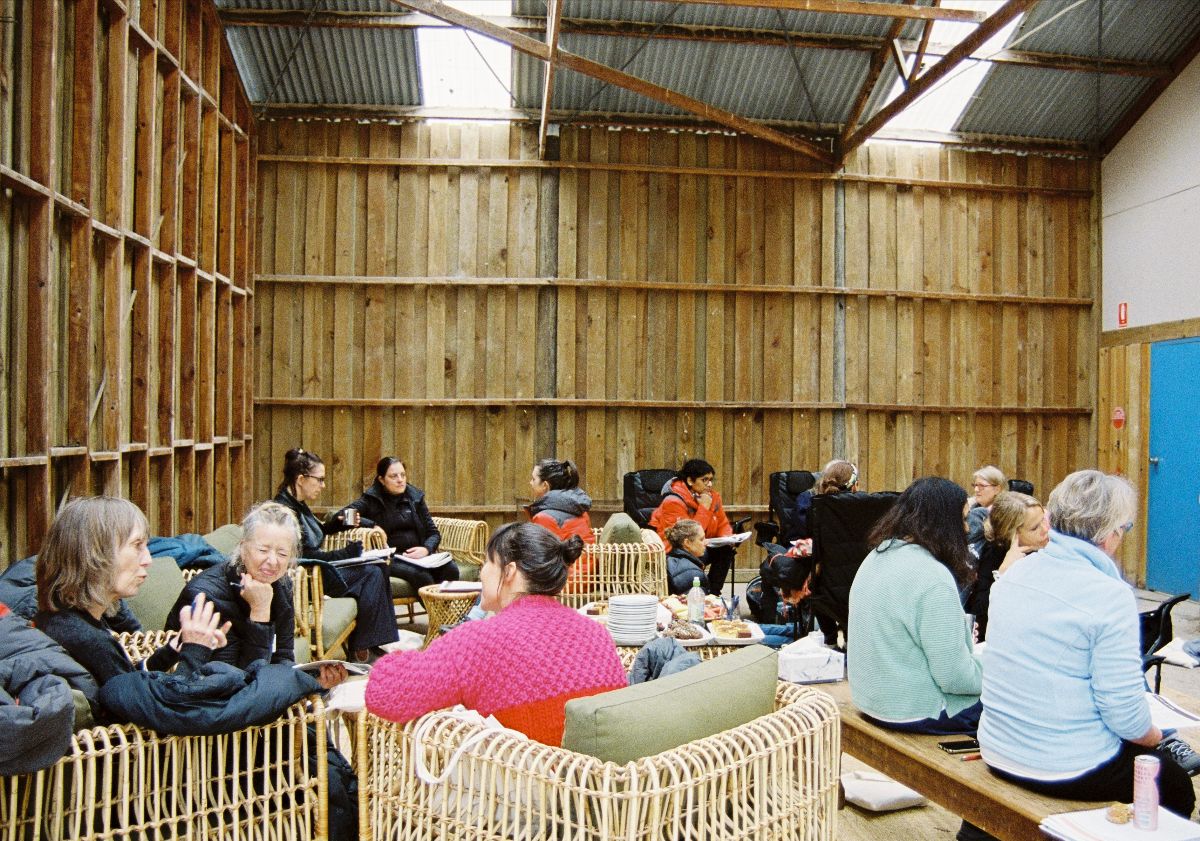Like many, I’ve had to battle with myself at times over the need or expectation to build networks. I think it’s because I find small talk really triggering. It can be unbearable, a superficial exercise with the added pressure of having to perform. I’ve projected a lot of unfair judgement on work colleagues due to this experience, rolling my eyes at Monday morning watercooler chit-chat, pretending I was having ‘connection problems’ rather than face up to a morning catchup on Zoom.
That’s because what I’m really looking for is authentic connection, and small talk can feel like the opposite of this. Hence my aversion to networking, and especially where it comes to building networks with women.
When I first took part in the Compass leadership program for women eleven or twelve years ago, it was genuinely transformative for me. I learned so much that I continue to use every day, even now. Early last year, when I had the opportunity of taking part in the Compass Advance program, I approached this with just a little more fear and dread in my stomach. It was a retreat format, situated at a beautiful location on Victoria’s Great Ocean Road over three days of ‘glamping’.
There’s a stereotype that women easily form connections, like some kind of ‘coven’ driven instinct that draws us together to scheme and plot and gossip.
That means there’s nowhere to hide, I thought to myself. There’s going to be small talk. I’ll probably have to share my thoughts and feelings and hopes and fears!
But this isn’t an article about what happened on Compass Advance (whatever happens in Vegas stays in Vegas, right?). Although that’s an excellent story also. What I want to talk about is what happened in the weeks and months afterwards.
One of the core intentions of Compass is to build a network of women, and that’s more complex than people assume. There’s a stereotype that women easily form connections, like some kind of ‘coven’ driven instinct that draws us together to scheme and plot and gossip.
What we actually do is seek to form long-term, personal connections based on trust. And trust takes time to build. We’re more likely to think in terms of what we can do for someone else, rather than the other way round – a distinct difference from how men typically network. ‘The male brain is more compartmentalized,’ says Helen Fisher, Ph.D., biological anthropologist at Rutgers University and author of Why Him, Why Her. ‘They get straight to the point; they know the goal. They tend to decide right away, with little to no small talk, whether they will work with you or not.’
In the pursuit of ‘getting ahead’ through using our networks, this is where women can sometimes be at a disadvantage. Because what we really need is a trusted and trusting, close circle of women with whom we can share work challenges, opportunities, ideas and so on. (This study from the Northwestern University into the gender composition of networks and how they communicate has some great findings on this.)
Which gets me back to Compass Advance. Following the wrap-up of the program, the group of us, sixteen or so, representing a broad range of professions and ages and profiles, all agreed to commit to keeping the group intact somehow. So, we set up a WhatsApp group.
I was sceptical. Even my improv comedy team eventually ran out of energy to keep our WhatsApp group going.
But we weren’t just committed to staying in touch; we had made a promise of sorts to reach out to one another when we had something to celebrate or something to mull over that was painful or challenging.

The best example of this was a couple of months ago, when one of the members of our team, a senior scientific researcher doing vital work at a university – who I’ll call Awesome Woman Number 1 (AW1) – was grappling with the dilemma of ‘going to the dark side’ and taking a role in the private sector. She came to our circle to get our feedback and support, and for her, I know that would have taken a tremendous amount of courage. What flowed from her reaching out was so deeply affirming and smile-inducing, I asked the group for their permission in sharing some of the conversation…
AW1: … I was working to exhaustion to tick all the boxes I thought I needed to, to prove that I am a mature independent researcher worthy of getting a more senior position, totally neglecting my own wellbeing… I have to make a very hard and important decision. I got an offer of a permanent, extremely well-paid job as a Senior Climate Advisor/Analyst with *prominent corporation name*. I am very tempted to take the role but at the same time I feel like I would sell out and “fail” as a scientist, since I will be leaving academia… How selfish would I be to leave research and go into industry?… I am asking for your honest opinion because I value all of you and hold your opinions in extremely high regard…
Queue the knuckle cracking of 16 women, all gearing up to respond.
AW2: You can still make important contributions to society outside academia, arguably even more impact… you are not bad or selfish for leaving! Climate research is important, but so is the application of it…
AW3: … A powerful, passionate, purposeful mind like yours deployed into sectors where you can really influence is what we need… There’s nothing selfish about rising to your higher self, by the way…
AW4: The change of working environment, the bravery in making the change, will benefit you in more ways than continuing to bang your head against the academia brick wall… Taking such a leap of faith worked for me.
AW5: Your science skills will never leave you, you will continue to use and expand on how you can use them 
AW6: As a non-scientist/non-academic, I’m personally very excited by the idea of having more women scientists in positions where they may be able to influence what’s happening… All your strategic skills will be called upon to make a difference, you’re really well-placed to do that and have a real impact.
AW7: You are definitely not alone and this exodus back to industry is happening at all levels. (This was followed by a couple of powerful examples of women going through a similar dilemma.)
Awesome Woman Number One went on to accept the role, and there’s a bunch of other examples in our chat where similar conversations have taken place. Nine months on from Compass Advance, we’re keeping the network alive. Not a lot, but when we need to.
Stepping out of my comfort zone to develop and build a network, has oddly resulted in something intensely comforting. And I’m not sure that’s something I had placed a big enough value on. I sure as heck do now.
Find out more about the Compass leadership program for women, including Compass Advance or get in touch.




